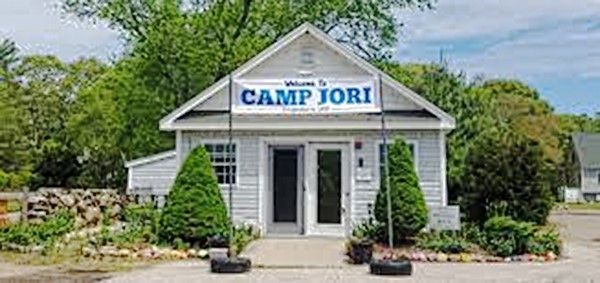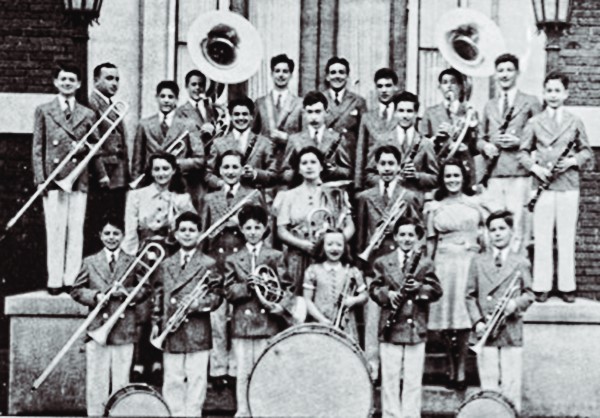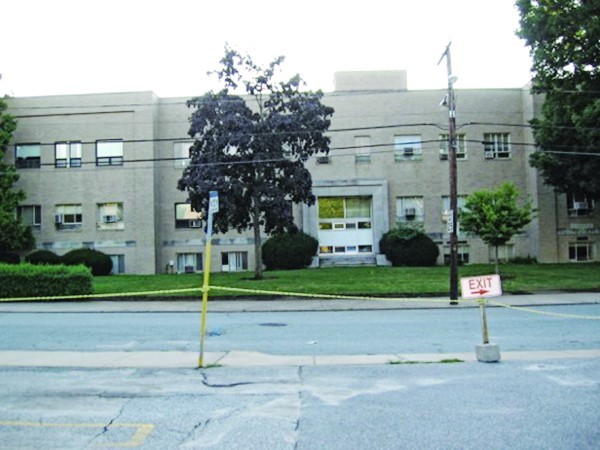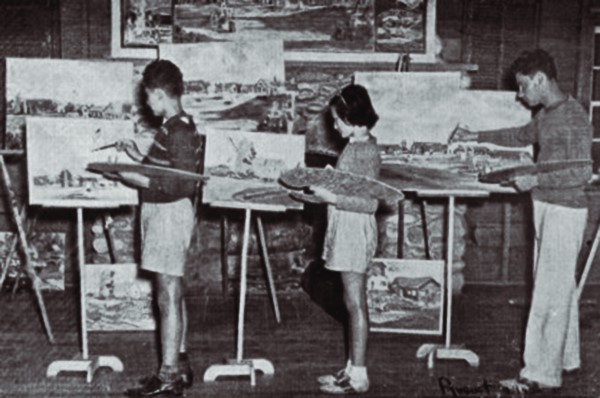The Jewish Orphanage of R.I.: ‘A cherished institution’
On May 20, 1951, with due celebration, the cornerstone was laid at the new home of The Miriam Hospital. The structure on the corner of Summit Avenue and Fifth Street in Providence would replace the old hospital on Parade Street.
Placed in the cornerstone was a document quoted by Dr. Seebert Goldowsky in his article “The Jewish Orphanage of Rhode Island” in the Rhode Island Jewish Historical Association’s Notes in October 1959. The opening paragraph of the document is quoted below:
“To Whom It May Concern:
“This memorandum is but a brief resume of The Jewish Orphanage of Rhode Island, organized in the year A.D. 1909, later to be known as the Jewish Children’s Home and Foundation of Rhode Island.”
What follows is a tribute to the founders and their vision, as well as praise for the excellence of the home, its program and staff.
One may ask why this document was placed in the hospital’s cornerstone. No specific reason was given in the article, but both institutions had the support of many of the same people in the community.
The original building on the Summit Avenue property was, for two decades, The Jewish Orphanage of Rhode Island. Its sale to The Miriam marked the end of an era and the end of “a cherished institution.”
The story of The Jewish Orphanage of Rhode Island began with controversies. The first occurred at a contentious meeting at the South Providence Hebrew Congregation, on Willard Avenue. At one point, Herman Paster, Providence sheriff and political leader, and his faction angrily left the meeting.
Soon after, they founded another synagogue, Machzeka Hadas, incorporated on March 22, 1907. Paster and his followers purchased a property on Willard Avenue, at the corner of Caswell Court, for the synagogue. The back part of the parcel held a house, for which there was no need. Someone suggested it would be ideal for an orphanage. By the time the synagogue was dedicated, two orphans were in residence, under the watchful eye of a matron.
But there was a problem – finances. Paster appealed to the South Providence Ladies’ Aid for support. They agreed to assist. They applied for, and were granted, a charter for the Rhode Island Home for Jewish Children in September 1908. But support was soon withdrawn over questions about its management and finances.
Paster and his followers in turn incorporated as the Mazekas Hadas Home for Jewish Orphans that November, and announced that the home was now open under new auspices. Just a few months later, the overcrowded house was home to 17 orphans.
The South Providence Ladies’ Aid now had a charter and a mission but no orphanage. To this end, they solicited the aid of the Montefiore Lodge Ladies Hebrew Benevolent Association. With its cash donation, the women were able to open a second Jewish orphanage. Located at 151 Orms St., the facility included a day nursery that was open to all.
Financial problems plagued both orphanages. Dr. Goldowsky wrote, “… both groups were obliged to call for help. Business leaders of Providence were approached, and following exploratory negotiations, a responsible group agreed to lend a hand. In fact they took over.”
In July 1909, the new Jewish Orphanage of Providence was incorporated. The Orms Street facility was closed and the children were temporarily transferred to the Willard Avenue site.
A large house at 1213 North Main St. was purchased and the children were resettled.
Ironically, as Sonya Michel states in her article in Notes in November 1977, the home was opened at a time when experts in the field of child welfare were turning away from institutional care in favor of family or foster care for dependent children. It is doubtful the people who started the Jewish orphanage knew of this trend. They were not professionals, as Michel points out, but were members of the community who perceived a need and were determined to fill that need.
Within three years, the Board of Trustees replaced the matrons/house mothers with superintendents who were schooled and experienced in the field of child welfare and understood the importance of deinstitutionalizing the children.
From the outset, in small ways and large, the children were not shut away from the wider community. Their house looked like other houses in the neighborhood. They had a large yard in which to play, and there is evidence that there was some interaction with the neighborhood children. They attended public school and Temple Emanuel. They participated in activities designed to promote a feeling of family.
In 1924, the new building on Summit Avenue was opened. It hardly resembled a home, but it had facilities designed to further widen contacts with the community.
Graduates of the home, who were interviewed by Sonya Michel, described an open and hospitable place. The new gym and playing fields hosted basketball and baseball games with other teams, and neighborhood children were allowed into the outdoor play areas. Music classes and dramatics were held. When a band was organized, the Ladies’ Auxiliary provided money for uniforms. The children were encouraged to invite friends to visit and for sleepovers. Shopping trips for the older children – two or three at a time – were arranged so that they could choose their own clothes. Likewise, residents were taken in small groups to the beaches in summer.
In 1937, land was acquired on Point Judith to build a summer camp for the orphans. But by 1941, the number of residents had declined to the point where a large orphanage was no longer needed, and the home closed. Foster homes and family members now provided care. The building and surrounding property were sold to The Miriam Hospital and the funds assigned to the JORI [Home for Jewish Orphans] Foundation.
The Home for Jewish Orphans grew out of controversy to become a positive and cherished institution. It is gone, yet it still lives, in its legacy of Camp JORI and the JORI Foundation.
GERALDINE S. FOSTER is a past president of the R.I. Jewish Historical Association. To comment about this or any RIJHA article, contact the RIJHA office at info@rijha.org or 401-331-1360.















